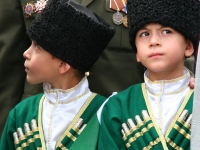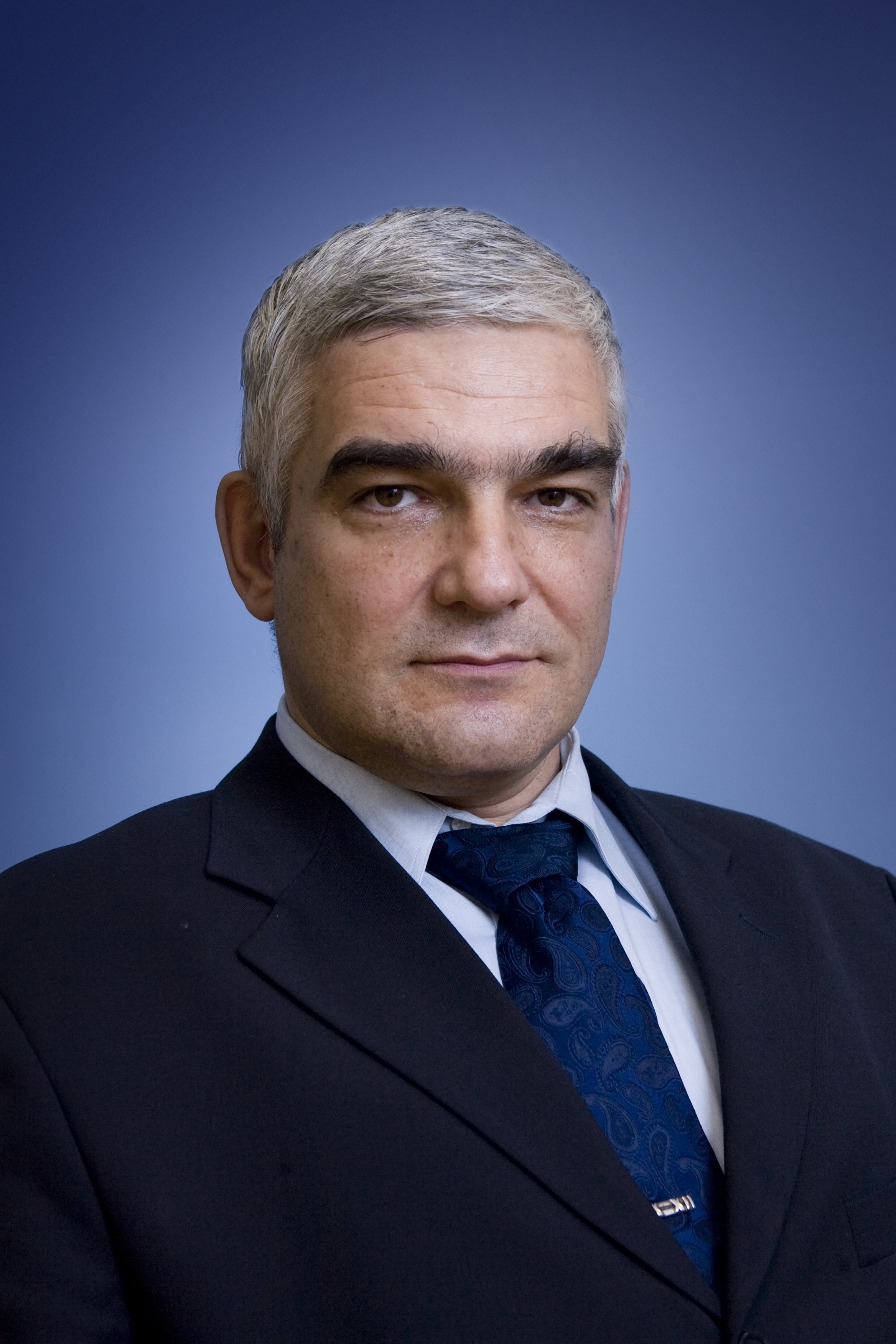{
"authors": [
"Alexander Skakov",
"Nikolay Silaev",
"Andrei Ryabov",
"Sam Greene"
],
"type": "event",
"centerAffiliationAll": "",
"centers": [
"Carnegie Endowment for International Peace",
"Carnegie Russia Eurasia Center"
],
"collections": [],
"englishNewsletterAll": "",
"nonEnglishNewsletterAll": "",
"primaryCenter": "Carnegie Endowment for International Peace",
"programAffiliation": "",
"programs": [],
"projects": [],
"regions": [],
"topics": []
}
The “Cherkessian Factor” in the Contemporary Political Situation in the Caucasus
Mon, September 27th, 2010
Moscow
IMGXYZ2796IMGZYXThe phrase “Cherkessian Factor” usually refers to the influence exerted by the ethnic solidarity of the Cherkessian (Abkhaz-Adyg) peoples, both those located in the Russian Federation and the Cherkessian diaspora in Turkey, Jordan, Israel, Lebanon, and Egypt. This influence is felt on political, social, and cultural processes in the Caucasus and in countries with a large Cherkessian population. It is increasingly likely that this Cherkessian factor will lead to further destabilization in the North Caucasus.
The Carnegie Moscow Center, as part of the Black Sea Peacebuilding Network, hosted a discussion on the Cherkessian factor. Alexander Skakov of the Institute of Oriental Studies, Russian Academy of Sciences, and Nikolay Silaev of the Center for Caucasian Studies, Moscow State Institute of International Relations, spoke on this factor and its potential influence. Carnegie’s Andrei Ryabov moderated.
International context
- Georgian-Abkhazian conflict: After the Georgian-Abkhazian war of 1992-1993—in which volunteers from the Cherkessian republics played an active role in support of their ethnic kin, the Abkhazians—the unity of the Cherkessian peoples was perceived as having reached a new level. Many also expected that the Cherkessian national movement would become a new political player in the Caucasus. This has not happened, despite repeated attempts to create a single center of leadership for the Cherkessian national movement.
- Abkhazian-Turkish relationships: The extensive and influential Abkhazian diaspora in Turkey means that the country will remain a significant external partner for Abkhazia, on an equal footing with Russia. Abkhazia’s “horizontal ties” with the diaspora may ultimately be more important than Ankara’s official position of non-recognition on the political fate of Abkhazia.
- Olympic Games in Sochi: The international Olympic festival in Sochi in 2014 will occur during the 150th anniversary of the end of the Great Caucasian War, a moment enshrined as a tragic national memory for the Cherkessians. The games are scheduled to be held in Krasnaya Polyana, which was built on the site of the last center of Cherkessian resistance during the war.
Domestic risks
- “Dual-status” republics: Within the Russian Federation, there are two “dual-status” republics with a particularly large Cherkessian population (Kabardino-Balkaria and Karachaevo-Cherkessia). In both republics, this Cherkessian population is vying for political power with another ethnic group, the Karachai-Balkars, creating a dangerously volatile situation. Both groups advocate consolidating their respective territories and approach the issue with a relatively nationalistic bent. The competition between these two hypothetical, ethno-national projects (Greater Cherkessia and Greater Balkaria) is intensified by a complex mix of mutual, territorial, and political claims of each ethnic group.
- The “Cherkessian genocide” under the Russian Empire: The historical memory of the Cherkessian people places a great deal of emphasis on what is sometimes termed the Cherkessian genocide, when the tsarist government forcibly deported Cherkessians and engaged in ethnic cleansing. This controversial term is contested, which causes tension between ethnic Cherkessians and the Russian government. The narratives of the numerous sacrifices attributed to the Cherkessians during their war with the Russian Empire from 1820s to the 1860s—and in the course of their subsequent forced resettlement in the Ottoman Empire—are often used by the local elites of the Cherkessian republics to pressure federal authorities for further subsidies and assistance.
- The North Caucasus Federal District: This district, created in 2010, officially divided the Cherkessian republic Adygea from two other administrative subdivisions, Kabardino-Balkaria and Karachaevo-Cherkessia, which contain a strong Cherkessian ethnic element. The new district created a symbolic obstacle to the inclusion of the Cherkessians of the North Caucasus Federal District (which includes both Kabardino-Balkaria and Karachaevo-Cherkessia) in activities connected with the Olympics, because the Sochi region, as well as Adygea, is located in other federal district.
The speakers concluded by discussing possible avenues for resolving the tensions created by the Cherkessian factor in the North Caucasus, including full-scale privatization of land ownership; implementation of the provisions of federal law for municipalities; and effective action against corruption. They argued that such reforms would “permit a significant portion of the population to return to normal economic activity, which is currently impossible, and would thus automatically reduce the unhealthy interest in politically charged questions of ethnic identity … and in radical Islamism.” However, they warned the Russian government does not seem to recognize the necessity of such reforms to help stem the increasing violence in the region.
Carnegie does not take institutional positions on public policy issues; the views represented herein are those of the author(s) and do not necessarily reflect the views of Carnegie, its staff, or its trustees.
Event Speakers
Alexander Skakov
Nikolay Silaev
Andrei Ryabov
Former Scholar-in-Residence, The East East: Partnership Beyond Borders Program, Moscow Center

Ryabov was chair of the Carnegie Moscow Center’s East East: Partnership Beyond Borders Program. He is also the chief editor of the journal World Economy and International Relations and a leading researcher at the Russian Academy of Sciences’ Institute of World Economy and International Relations.
Sam Greene was a deputy director for operations at the Moscow Center. He joined the Moscow Center in 2005. Previously, he was senior media program advisor for the New Eurasia Foundation, and a London and Moscow correspondent for FT Business.
